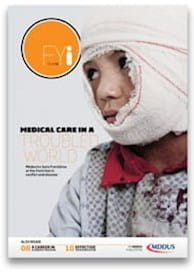PUSHING the boundaries of knowledge and seeking answers to important questions are all in a day’s work for a clinical academic. This varied field offers endless opportunities for those interested in research, teaching and management.
Whether you have ambitions to be the next chief medical officer, enjoy spending hours in a laboratory or have a burning desire to take part in research projects that have the potential to change the way disease is diagnosed and treated, then a career in academic medicine could be for you.
Academic work is usually undertaken in addition to work in clinical practice, offering the chance for “the best of both worlds”.
Entry and training
The route into an academic career involves considerable commitment and will require more skills than an intercalated BSc can provide. This will likely mean undertaking a higher research degree (MD/PhD) alongside your clinical training.
One popular postgraduate route is via Academic Foundation Programmes (AFPs) which operate across the UK. These give foundation doctors the chance to develop skills in research, teaching and leadership/ management in addition to the basic competences outlined in the curriculum.
While this is a very useful programme, it is not the only way of entering the field. There will be other opportunities during your career to develop academic skills and an AFP is not a pre-requisite for securing a research fellowship or other academic post.
The UK Foundation Programme Office’s (UKFPO) Rough Guide to the Academic Foundation Programme offers a very useful overview. It says there are currently around 450 AFPs available each year across the UK, accounting for just over five per cent of UK foundation programme places. There is great variety between AFPs, with some focusing on traditional academic pathways such as research and teaching, while others focus on areas like leadership and management, quality improvement and even health informatics. All programmes have the same common purpose; they enable foundation doctors to develop their clinical skills whilst simultaneously supporting the development of key skills in other areas of medicine.
Foundation doctors following an AFP have dedicated time set aside for academic activities, the nature of which will depend on the AFP itself. AFPs vary significantly between foundation schools. Most of the dedicated academic time will be during the second year of foundation training (F2), but some programmes arrange additional activities during F1. Trainees may have a four-month academic placement in F2, day-release throughout the year, or a combination of the two.
The UKFPO strongly advises applicants to research the AFPs on offer and apply for those that best suit your interests. Most foundation doctors organise a project for their academic placement which forms the main focus of the AFP. The options are varied. Some doctors choose a lab-based project leading to a scientific publication while others might opt for a clinical quality improvement project with the aim of improving patient care.
The UKFPO highlights a number of desirable qualities in trainees seeking an academic career. Candidates must be able to demonstrate that they understand what the career involves and be competitive and successful with “something on their CV that stands out” such as distinctions, prizes etc. You must demonstrate an interest in your chosen specialty, have a passion for the AFP programme and good clinical abilities as AFP trainees are expected to gain all of the foundation programme outcomes in reduced time.
More advice can be sought from your dedicated academic supervisor who will oversee academic work and provide feedback.
Specialist training
On completion of academic foundation training, there are many available options which differ across the UK. For trainees in England, the next step is usually to enter an academic clinical fellowship (ACF) for up to three years with entry at ST/CT1-4. This is followed by up to four years in a clinical lectureship position (entry at ST3 or above), before achieving the Certificate of Completion of Training (CCT).
These schemes are co-ordinated by the National Institute of Health Research (NIHR), but many UK charities and funding bodies also provide additional personal fellowship schemes. Support for clinical academics is available from professional bodies including the Royal Colleges.
Scotland opted not to follow the ACF scheme and set up its own system, the Scottish Clinical Research Excellence Development Scheme (SCREDS). The entry point is from ST1/ CT1 and can last up to the entire duration of specialty training. Posts are funded by NHS Education for Scotland and Scottish universities. They typically average around 80 per cent clinical time and 20 per cent academic time, with flexibility according to your career stage. More information is available on the NES website.
The BMA website provides a useful overview which explains that there are “different opportunities available at the various levels of seniority, and the nature of academia means that careers may not follow an established or set pathway.” It also highlights that, unlike in England, all medical academic training posts at specialty level are university contracts, with terms and conditions that may differ from those offered by the NHS junior doctor contract.
Again, it is important to note that neither the ACF nor SCREDS are the sole, or even predominant, ways of obtaining experience and training in academic medicine. Look for opportunities in your area by contacting your local research and development office or consider organising your own research project while completing clinical training. University websites will also have details of funded research posts while organisations such as the Wellcome Trust offer research funding.
Moving forward
The opportunities for working within academic medicine are varied. Doctors may choose to take up a post as a senior lecturer, consultant/ honorary senior lecturer or pursue a senior clinical fellowship. Notable clinical academics include chief medical officer Professor Dame Sally Davies, and the immediate past director of the Wellcome Trust (and current Chief Scientific Adviser) Professor Sir Mark Walport with many more in the fields of medical education and scientific research. Many agree these are exciting times for clinical academics with great flexibility in choosing which path to follow.
Joanne Curran is an associate editor of FYi
Sources:
• Rough Guide to the Academic Foundation Programme, March 2013, UK Foundation Programme Office
Q&A Dr Thomas Kelley Project leader with the International Consortium for Health Outcomes Measurement, Boston MA; UKFPO academic adviser.
What is attractive about a career in academic medicine?
Academic medicine is broad, from cellular research to clinical trials to working at the level of the health system. It gives you the opportunity to think about some of the greatest challenges that we face from managing dementia to developing new models of healthcare delivery. Naturally this is challenging and immensely stimulating. You get to be innovative and creative and define where you’re going to focus, how you’re going to investigate a particular problem and once investigated, how this will be translated into a solution. This has the potential to have an enormous, positive societal impact. You get to meet interesting, brilliant people who challenge your thinking. You get to talk about your work, to debate with people, to convince people that what you’re doing makes sense. Ultimately, it is the challenge, the intellectual stimulation and the potential impact that I find most attractive.
What challenges do academic clinicians face?
The intellectual challenge, as described above. However, this is positive. The negative challenge is that you have to decide where to focus. You cannot be brilliant at everything. Do you continue with clinical medicine or not, for example? There can also be challenges with getting academic posts as they are very competitive.
What do you consider the most important personal characteristic in a good academic physician?
Resilience. Whether this means bouncing back from not getting the academic position you wanted or not getting the results you wanted/hoped for in an investigation.
What is your most memorable experience so far?
Getting the job that I always wanted and then really struggling to get the US work visa to turn the dream into a reality.
Is there any advice you could give to a final year or FY trainee considering academic medicine?
Don’t think of academic medicine as only lab based or clinical research churning out papers. It is broader than that. I am, for example, about to start working at a healthcare institute set up by Harvard (www.ichom.org), where we work with healthcare organisations around the world to develop outcome measures for disease management. I think this has the potential to really improve the quality of patient care.
This page was correct at the time of publication. Any guidance is intended as general guidance for members only. If you are a member and need specific advice relating to your own circumstances, please contact one of our advisers.
Read more from this issue of FYi

Save this article
Save this article to a list of favourite articles which members can access in their account.
Save to library

